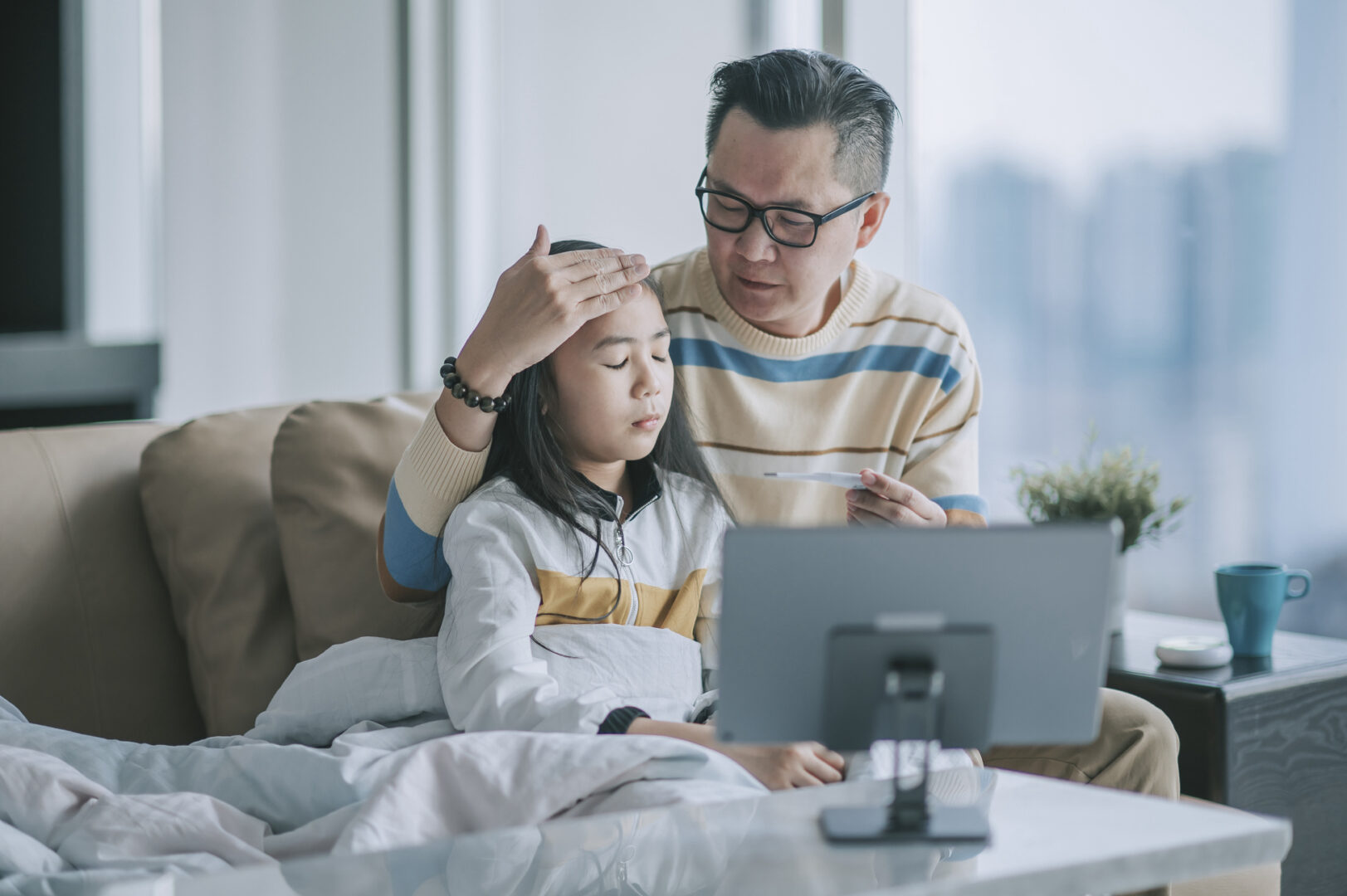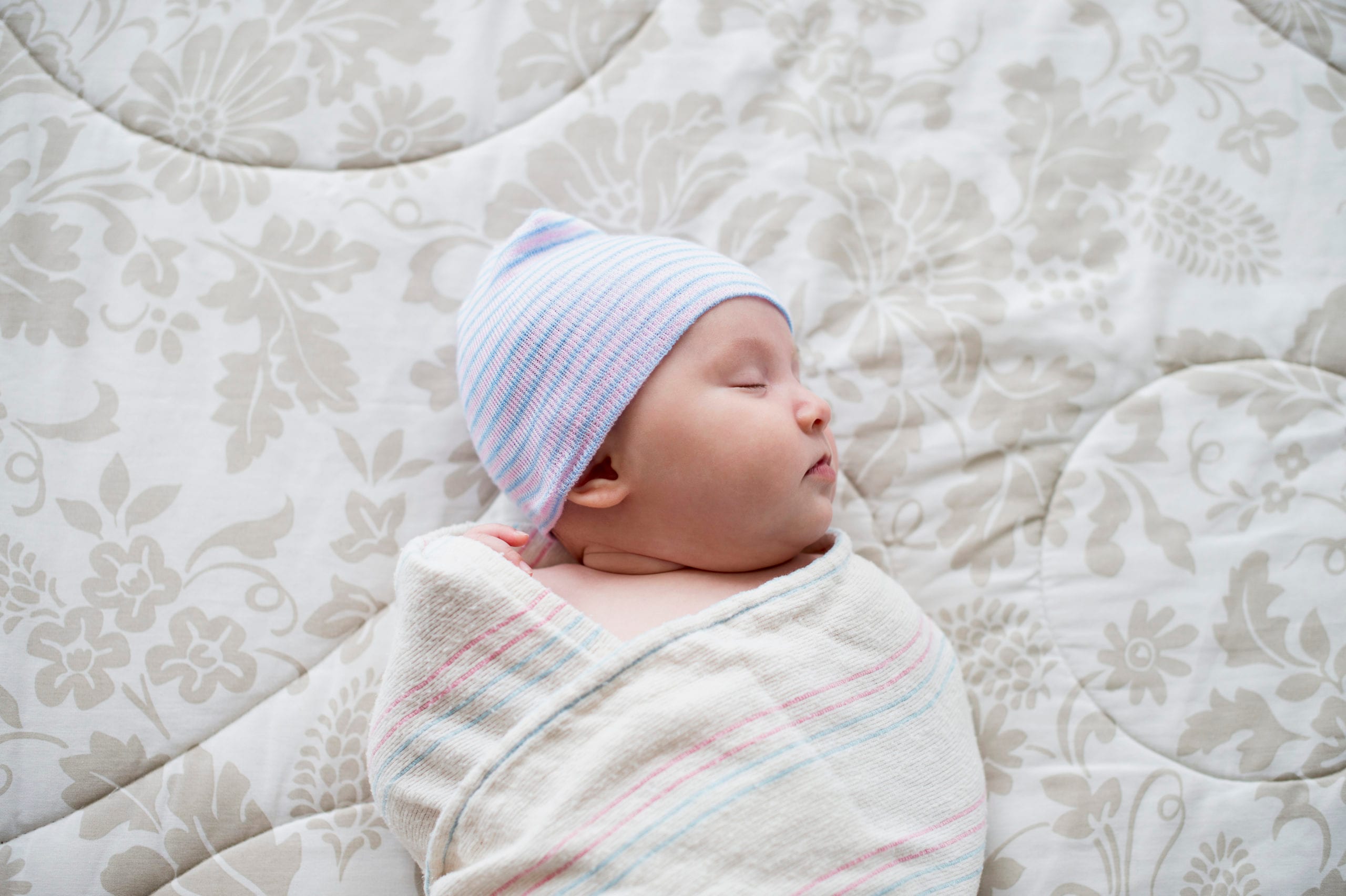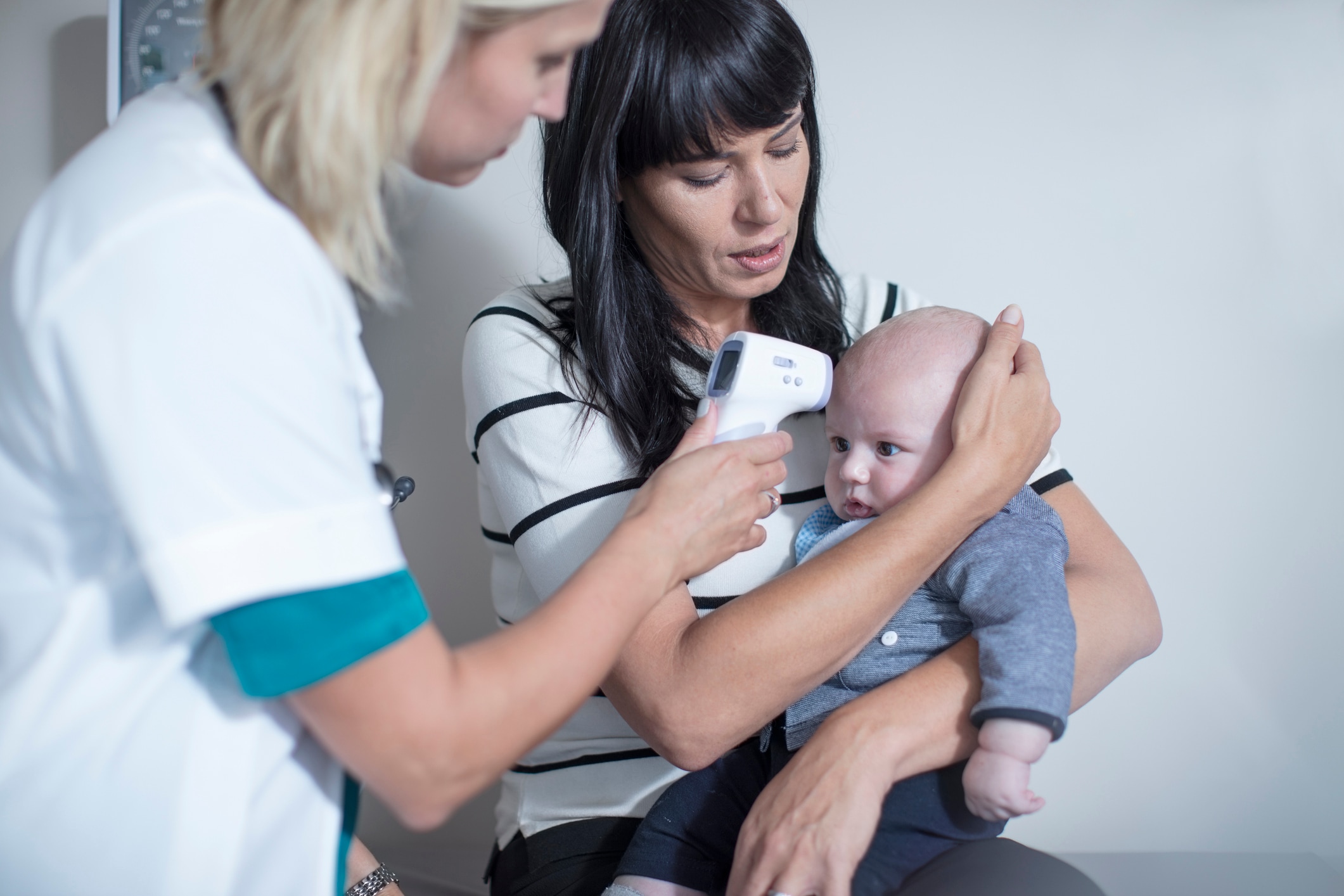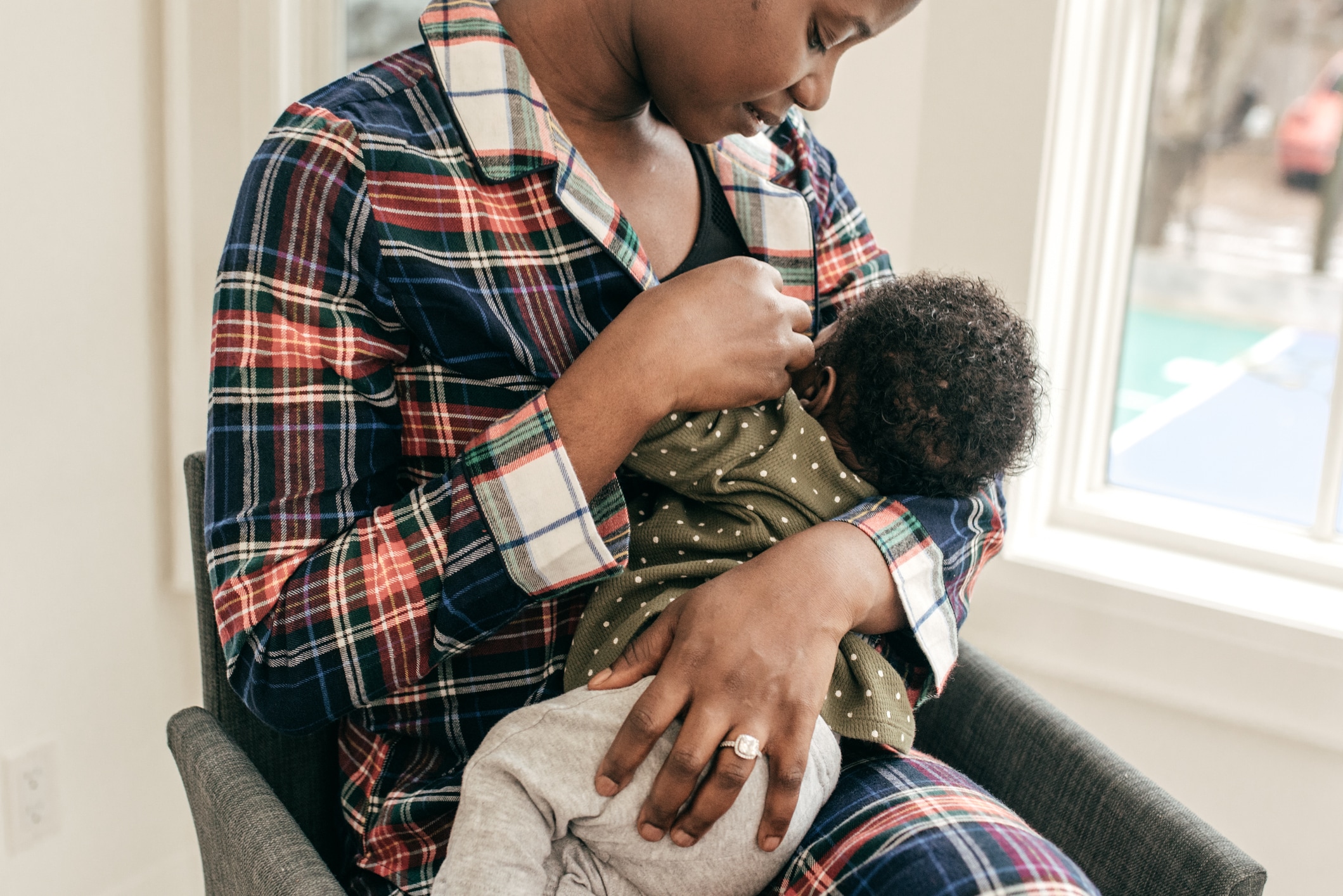Deciding when to keep your child home from school is never an easy call. If they’re a little stuffy, should they stay home? What if they’re coughing? Is it allergies? A cold? COVID? It’s enough to make any parent or caregiver’s head spin.
“We know that there are many benefits beyond just education in having kids attend school in person, but to safely do that, parents and caregivers need to be aware of what to look for, when to keep kids home and when it’s OK to send them back,” says Dr. Jenna Wheeler, a pediatric critical care physician at Orlando Health Arnold Palmer Hospital for Children. “We’re entering flu and respiratory virus season, and it’s important to help prevent the spread of all of these illnesses.”
“We’re entering flu and respiratory virus season and it’s important to help prevent the spread of all of these illnesses.”
— Dr. Jenna Wheeler, pediatrician
Key takeaways
- Knowing when to keep a child home can be tricky, but key symptoms like fever, vomiting, persistent cough, or unexplained new issues are strong indicators to stay home. Pediatricians stress that kids should be fever-free for 24 hours without medication and clearly improving before returning to school.
- COVID, flu, and other respiratory viruses make it especially important to err on the side of caution. Testing and medical guidance can help distinguish infections from allergies and determine when a child is no longer contagious.
- Ultimately, parents should trust their instincts and consult their pediatrician whenever they’re unsure. Keeping kids home when they’re unwell protects both their recovery and the health of classmates and teachers.
General recommendations for returning to school after illness*
Not sure when a child should head back into school after they’ve been ill? Here are some general guidelines and recommendations (followed by more detailed information) from Dr. Sara Siddiqui, a pediatrician and clinical assistant professor in the Department of Pediatrics at NYU Langone’s Hassenfeld Children’s Hospital in New York and Dr. Brandon Smith, associate medical director of the Harriet Lane Clinic at Johns Hopkins in Baltimore, as well as Wheeler:
| Symptoms | Keep kids home until they: |
|---|---|
| Fever | Have tested negative for COVID and are fever-free without fever-reducing medicine for 24 hours. |
| Cold or cough | Have been symptom-free, particularly if there’s a fever, for 24 hours. |
| Vomiting | Feel better, and it’s been 24 hours since the last vomiting episode. |
| Diarrhea | Haven’t had diarrhea in 24 hours and are feeling better. (If a specific cause of the diarrhea has been diagnosed, they may need to stay out of school longer.) |
| Rash or hives | Have been fever-free for 24 hours and are released by their pediatrician, as it depends on rash type. |
| COVID-19 | Have been fever-free for 24 hours and 5 days have passed from the onset of symptoms. |
When should I keep my child home from school?
According to Siddiqui, the following are reasons to keep a child home from school:
- A temperature above 100.4 F.
- Vomiting.
- A cough that is persistent.
- Congestion.
- A rash that is spreading.
- Lesions on the skin that are open or infected.
- Blisters that are spreading.
- Headache.
- Loss of taste or smell.
- Stomach pain.
- Sore throat.
- Nausea.
- Any unexplained symptom that is new and persistent.
“When unsure, call the pediatrician for advice on how to proceed and whether or not a child needs to be evaluated in the office,” Siddiqui adds.
Read more:
Can my child go to school with a fever?
No. Children should not go to school with a fever. “A fever indicates that the body’s immune system is fighting off an illness and could be when a person is actively infectious and contagious,” Siddiqui explains. “Kids should stay home until the fever has been resolved for 24 hours without fever-reducing medication.”
“A fever indicates that the body’s immune system is fighting off an illness and could be when a person is actively infectious and contagious.”
— Dr. Sara Siddiqui, pediatrician
Can my child go to school with a cough or cold?
According to Smith, kids may be able to go to school with a cold or cough — but it depends on a number of things. “In addition to taking the school’s policies into account, parents should also consider how long a child has had the cough, if they have other symptoms and if they’ve seen a doctor to evaluate the cause,” Smith says. “However, if you’re concerned that your child may have a new cold or viral infection, it’s best to keep them home. Especially during the pandemic, we want to do all we can to limit children from passing viruses around to each other and their teachers.”
“If you’re concerned that your child may have a new cold or viral infection, it’s best to keep them home.”
— Dr. Brandon Smith, pediatrician
In some areas, kids with symptoms may need to be tested for COVID in order to go to school. “A persistent cough or congestion should be evaluated by a medical provider to ensure that the child is not contagious,” Siddiqui says. “Testing for COVID may be necessary to determine if a child may return to school. Allergies can be very common, but the only way to know for sure is to have testing done.”
Once a child with congestion or a cough has received a negative test result, Wheeler says they should be “improving, fever-free and feel well enough to attend school again.”
Can my child go to school after throwing up?
“If your child has been vomiting, in general, they should stay out of school until the vomiting is better and no longer an issue,” Smith says. More specifically, Wheeler adds that the child should be able to “stay well hydrated and be back to eating.”
Can my child go to school with diarrhea?
If “diarrhea is accompanied with fever or vomiting” then a child needs to be feeling better and fever-free before returning to school, according to Siddiqui.
However, Smith notes one distinction. “If the cause of diarrhea is from a bacteria or parasite, the child may need to stay out of school longer,” he says, adding that the only way to know for sure is to speak with the child’s pediatrician.
Can my child go to school with a rash or hives?
If a child wakes up with a rash, it’s smart to get them checked out by their pediatrician, as there are a number of things that can be going on. “Some rashes are caused by a viral infection and may not be contagious when the rash is present — this would need to be determined by the medical provider,” says Siddiqui. “Hives are usually caused by an allergic reaction and also would need different treatments. In general, once the rash or hives have been cleared to not be contagious, then the child may return to school.”
Can a child go to school with COVID?
It is recommended by the Centers for Disease Control that a person who tests positive for COVID should not be around others until they’re symptom-free for at least 24 hours.
“Families should stay in touch with their medical provider or pediatrician,” notes Siddiqui, “as the guidance may change if the child is immune compromised or has other health issues.”
The bottom line on keeping kids home from school
“At the end of the day, parents know their children best,” Wheeler says. “If there are any concerns about them being ill or coming down with a sickness, keep them home and check in with their doctor for any further evaluation or care and to help answer questions about school attendance.”





